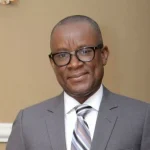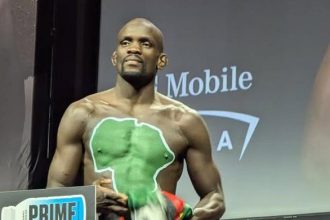Former Minister of Youth and Sports, Solomon Dalung, says Nigeria’s failure to reach the 2026 FIFA World Cup is the result of years of corruption, impunity and what he called deep institutional problems in the country’s football system.
The Super Eagles were knocked out of the qualifiers on Sunday after losing to the Democratic Republic of Congo on penalties in Rabat, sending the Leopards into the Intercontinental Playoff.
Speaking in Abuja on Monday, Dalung told the News Agency of Nigeria that the issues holding back Nigerian football have been around for decades. He said they have remained unresolved because many powerful interests benefit from the disorder.
He recalled that when he became minister in November 2015, many people judged him by his simple appearance and assumed he did not understand the sector. But he said he had followed sports for years and was already aware of the problems in the Nigeria Football Federation.
Dalung said his first major insight came in 2002 when he joined the Federal Government delegation to the Africa Cup of Nations in Mali. He said he witnessed a clash between captain Sunday Oliseh and the then Nigeria Football Association over what he described as unfair cuts to players’ bonuses.
He also said his estacode as a government delegate was not paid, leaving members of the delegation stranded until the Nigerian embassy stepped in. He added that the experience confirmed a lesson he once learned from a mentor, who advised him to sometimes act unaware in order to observe how a system works from the inside.
Dalung said he had met an elderly cleaner who told him that “in sports we work harder for failure than for success.” According to him, the cleaner also said tournament budgets were usually prepared up to the final stage, but administrators benefit more when teams exit early because unspent funds are hardly tracked.
Dalung said this turned out to be true throughout his time in office. He said efforts to demand accountability were often twisted into allegations of interference, while some officials sent petitions to FIFA to block reforms. He also said parts of the media attacked the ministry instead of probing the real issues.
He explained that he later set up a technical committee led by Col Abdulmumuni, which included former NFA chairmen, secretaries, ex-players, coaches, private sector figures and government officials. After months of work, he said the committee listed corruption, unpaid wages, nepotism, impunity and lack of transparency as the key problems.
Dalung said the committee recommended that Nigeria should step back from global football for six months and ask FIFA to install a normalisation panel to reorganise the system. According to him, “The ministry accepted the proposal and sent it to the President and to FIFA.”
But he said the reforms collapsed after President Muhammadu Buhari fell ill and travelled for medical treatment. During that period, he said, the presidency wrote to FIFA to reject the ministry’s report without informing him. He described that move as a major win for impunity.
Dalung said the effects of that decision were still visible today, noting that Nigeria had now missed multiple World Cup tournaments since 2018. He added that the country’s football problems were not mysterious but the product of long years of poor management.
He said only strong reforms backed by political will and real accountability could help Nigerian football escape what he called “the ghosts of indecision, corruption and impunity” that continue to affect its progress.











